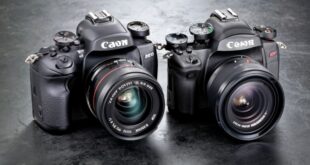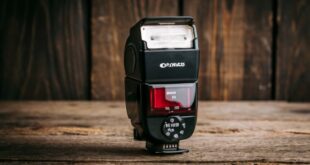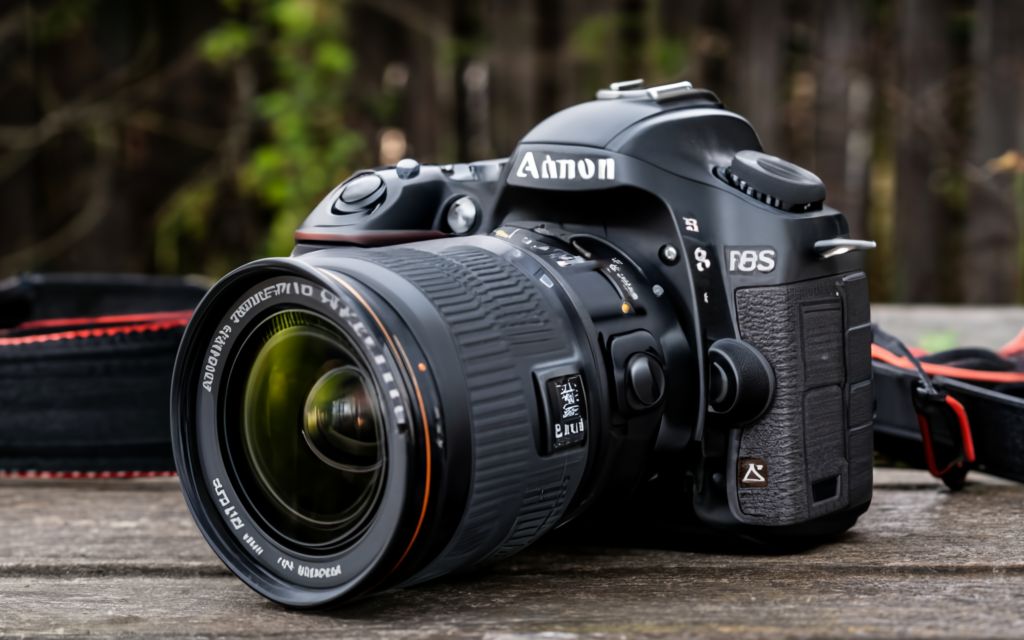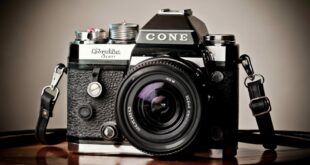Introduction
Hey there, photography enthusiasts! Are you wondering if you can use DSLR lenses on your Canon mirrorless camera? This article will answer all your questions and provide you with a comprehensive guide on using DSLR lenses on mirrorless cameras, specifically Canon. So without further ado, let’s dive right in!
The Rise of Mirrorless Cameras
📷 Before we delve into compatibility, let’s understand why mirrorless cameras have gained such popularity in recent years. Mirrorless cameras, as the name suggests, do not have a mirror system like traditional DSLRs. This allows them to be more compact, lightweight, and quiet. Additionally, mirrorless cameras offer advanced features such as real-time preview, faster autofocus, and video capabilities that appeal to both enthusiasts and professionals.
📷 However, one drawback of mirrorless cameras is the significantly smaller lens lineup compared to DSLRs. This is where the possibility of using DSLR lenses on a mirrorless camera, specifically Canon, comes into play.
Compatibility Between DSLR and Mirrorless Cameras
📷 When it comes to Canon mirrorless cameras, the great news is that many DSLR lenses are compatible. Canon introduced the EF to RF adapter, which allows seamless use of DSLR lenses on mirrorless bodies. This adapter bridges the gap between the different lens mount systems, enabling photographers to retain their beloved DSLR lenses while harnessing the advantages of mirrorless technology.
The Advantages of Using DSLR Lenses on Canon Mirrorless Cameras
📷 Now, let’s explore the advantages of using DSLR lenses on your Canon mirrorless camera:
1. Extensive Lens Selection:
With DSLR lenses being compatible with Canon mirrorless cameras, you gain access to an extensive range of lenses. Whether you’re into landscape, portrait, wildlife, or macro photography, you’ll find the perfect lens for your needs. The vast lens selection allows you to explore different creative possibilities without investing in additional lenses.
2. Cost Savings:
Using your existing DSLR lenses on a Canon mirrorless camera saves you money. Instead of selling your DSLR lenses and purchasing new mirrorless lenses, you can utilize your current gear and allocate those savings for other photography accessories or upgrading your camera body.
3. Quality and Performance:
DSLR lenses, especially high-quality ones, are known for their exceptional optics and superior build. By using these lenses on your Canon mirrorless camera, you can expect outstanding image quality and performance. This compatibility allows you to leverage the strengths of both systems and capture stunning shots.
4. Familiarity and Adaptability:
If you are already accustomed to handling DSLR lenses, using them on a mirrorless camera will feel seamless. The familiar controls and ergonomics provide a comfortable shooting experience. Additionally, the adapter ensures smooth communication between the lens and camera, allowing autofocus and other features to function properly.
5. Lens Investment Protection:
When you switch to mirrorless, you might worry about your substantial investment in DSLR lenses becoming obsolete. By using these lenses on your Canon mirrorless camera, you can continue to maximize the value of your investment without compromising on quality or performance.
6. Creative Flexibility:
With DSLR lenses on a Canon mirrorless camera, you can experiment with different focal lengths, aperture settings, and lens types. This versatility opens up a whole new world of creative possibilities, enabling you to capture unique and stunning images.
7. Easy Transition:
If you’re making the switch from a DSLR to a mirrorless camera, being able to use your existing lenses will ease the transition process. You won’t have to adapt to new lenses or learn their characteristics from scratch, allowing you to focus on exploring the features and advantages of your new mirrorless system.
The Disadvantages of Using DSLR Lenses on Canon Mirrorless Cameras
📷 While there are several benefits, it is important to consider the potential drawbacks of using DSLR lenses on Canon mirrorless cameras:
1. Size and Weight:
DSLR lenses tend to be larger and heavier compared to mirrorless lenses. The adapter adds extra bulk to the setup, making it less compact and lightweight, which may affect portability and convenience.
2. Autofocus Limitations:
Although the adapter allows autofocus functionality, it may not perform as efficiently as on a native mirrorless lens. Some DSLR lenses may have slower autofocus speeds or may not support certain advanced autofocus features available in mirrorless lenses.
3. Compatibility Constraints:
While the majority of Canon DSLR lenses can be used on mirrorless cameras through the adapter, there may be a few exceptions. Certain specialized lenses or older models might not have full compatibility or functionality, so it’s essential to research specific lens compatibility before making any purchases.
4. Incompatibility with Other Brands:
While this article focuses on using DSLR lenses on Canon mirrorless cameras, it’s important to note that lens compatibility can vary across camera brands. So if you plan to switch camera systems in the future, you may encounter compatibility issues with your DSLR lenses.
5. Potential Image Degradation:
The adapter introduces an additional element in the lens-camera connection, which can potentially affect image quality. However, with high-quality adapters, the impact on image degradation is minimal and often negligible.
6. Reduced Lens-Specific Features:
Sometimes, certain lens-specific features or functions may not be fully available when used with an adapter. For example, lens stabilization systems might not function optimally, or electronic aperture control may be limited.
7. Increased Cost and Complexity:
Although using DSLR lenses on a Canon mirrorless camera can save money on lens investments, it’s important to consider the cost of purchasing the adapter itself. Additionally, the adapter adds complexity to the system, requiring extra attention to compatibility and potential issues.
Complete Information Table on Using DSLR Lenses on Canon Mirrorless Cameras
| Lens Compatibility | Adapter Required | Fully Functional Autofocus | Image Quality Impact |
|---|---|---|---|
| All Canon EF and EF-S Lenses | Canon EF to RF Adapter | Yes | Minimal |
| Third-Party DSLR Lenses | Brand-Specific Adapters | Varies | Varies |
Frequently Asked Questions (FAQ)
1. Can I use Nikon DSLR lenses on a Canon mirrorless camera?
While the focus of this article is on using DSLR lenses on Canon mirrorless cameras, Nikon lenses can be used on Canon mirrorless cameras with the help of third-party adapters. However, there may be limitations in terms of autofocus and functionality.
2. Are DSLR lenses better than mirrorless lenses?
Both DSLR and mirrorless lenses have their own strengths and weaknesses. It’s difficult to declare one as universally better than the other. However, using DSLR lenses on mirrorless cameras allows you to benefit from the quality and performance of these lenses while enjoying the advantages of mirrorless systems.
3. Can I use vintage manual lenses on Canon mirrorless cameras?
Yes, vintage manual lenses can be used on Canon mirrorless cameras by utilizing lens adapters. These adapters allow you to mount lenses with different mounts or lens systems, opening up a world of creative possibilities.
4. Will using DSLR lenses on a mirrorless camera affect image quality?
When using high-quality adapters, the impact on image quality is minimal and often negligible. However, it’s important to research and invest in reliable adapters to ensure optimal results.
5. Can I use DSLR lenses on other mirrorless camera brands?
Lens compatibility can vary across different camera brands. While some adapters enable the use of DSLR lenses on mirrorless cameras of other brands, it’s crucial to research specific compatibility and any limitations before making any purchases.
6. Can I use DSLR lenses on crop-sensor mirrorless cameras?
Yes, DSLR lenses can be used on crop-sensor mirrorless cameras. However, it’s important to consider the crop factor, which affects the effective focal length of the lens. For example, a 50mm lens on a crop-sensor mirrorless camera will have a focal length equivalent to approximately 75mm.
7. Are there any limitations in using DSLR lenses on mirrorless cameras?
While DSLR lenses can be used on mirrorless cameras, some limitations may arise. These can include slower autofocus speeds, reduced lens-specific features, and potential compatibility issues with specialized lenses or older models. It’s crucial to research and understand the limitations before making any decisions.
8. Will using a DSLR lens on a mirrorless camera void its warranty?
Using DSLR lenses on mirrorless cameras with the appropriate adapters should not void the camera’s warranty. However, it’s always recommended to check the manufacturer’s warranty terms and conditions for specific details.
9. Can I use DSLR lenses on Canon EOS M series mirrorless cameras?
While the Canon EOS M series uses an EF-M mount, different from the RF mount found in Canon’s full-frame mirrorless cameras, adapters are available to use DSLR lenses on EOS M series mirrorless cameras.
10. Which adapter should I use for Canon mirrorless cameras?
Canon offers the EF to RF adapter specifically designed for their mirrorless cameras. This adapter ensures seamless compatibility and functionality when using DSLR lenses on Canon mirrorless bodies.
11. Are there any downsides to using adapters for DSLR lenses on mirrorless cameras?
Using adapters can introduce potential downsides such as increased size and weight, potential autofocus limitations, and additional cost. However, these downsides are often outweighed by the benefits of utilizing existing DSLR lenses on mirrorless systems.
12. Can I use DSLR lenses on Canon mirrorless cameras for video recording?
Absolutely! DSLR lenses can be used on Canon mirrorless cameras for video recording. You can enjoy the desired focal lengths, smooth focus transitions, and superior optical quality while shooting videos with your Canon mirrorless system.
13. Should I sell my DSLR lenses if I switch to a Canon mirrorless camera?
The decision to sell your DSLR lenses depends on personal preferences, budget, and the value you attach to your existing gear. If you can benefit from using your DSLR lenses on a Canon mirrorless camera, it may be wise to keep them and reap the advantages of both systems.
Conclusion
📷 In conclusion, the compatibility of DSLR lenses with Canon mirrorless cameras opens up a world of possibilities for photographers. With the right adapter, you can retain your investment in DSLR lenses while embracing the advantages of mirrorless technology.
📷 As with any decision, there are advantages and disadvantages to using DSLR lenses on mirrorless cameras. However, the benefits, including an extensive lens selection, cost savings, and familiar handling, often outweigh the drawbacks. By considering your shooting style, needs, and budget, you can make an informed decision on whether to use DSLR lenses on your Canon mirrorless camera.
📷 So, embrace this opportunity and unlock new creative avenues by using your DSLR lenses on your Canon mirrorless camera. Capture breathtaking images and videos like never before!
Closing Statement
📷 The information provided in this article is intended to assist photographers in understanding the compatibility and benefits of using DSLR lenses on Canon mirrorless cameras. It is crucial to conduct thorough research and consult reliable sources before making any equipment-related decisions.
📷 Remember, every photographer’s needs and preferences are unique, and what works for one may not work for another. So, take the time to evaluate your specific requirements and make an informed choice.
📷 Happy shooting!



